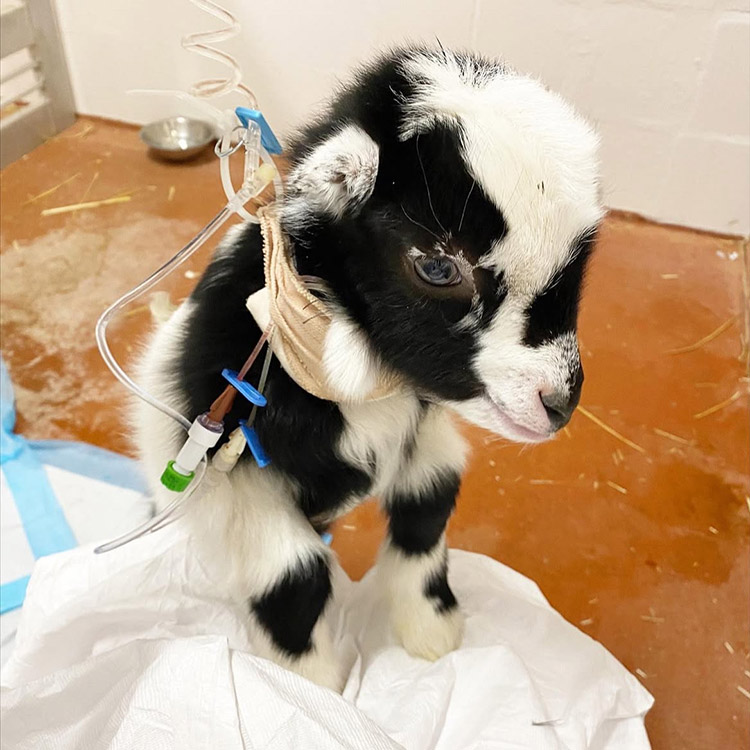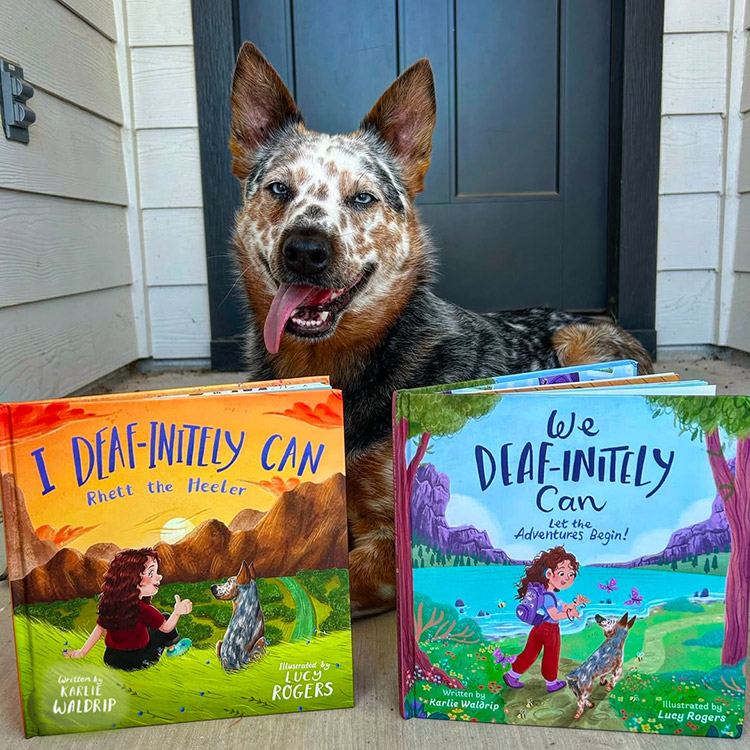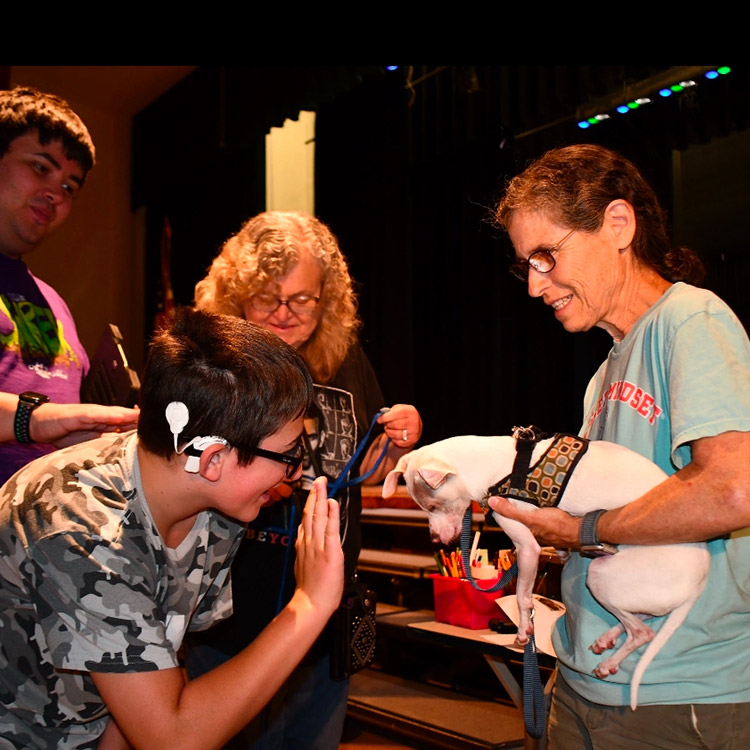What is a disabled pet?
Disability defined: A physical or mental condition that substantially limits one or more major life activities. Can be moderate or severe. Many require assistance to access a normal life.
Relatively common disabilities include deafness, blindness, mobility issues secondary to arthritis or loss of a limb due to injury or neoplasia, and chronic illnesses (diabetes, heart failure, cancer). More complicated and labor-intensive issues such as hind limb paralysis where pets need mobility assistance and bladder and bowels expressed, multiple missing limbs, hydrocephalus, and other neurologic conditions are also relatively common in pets.
Family pets become disabled due to injuries and illness. Congenital "defects" that cause disabilities are common in animals. Some breeders surrender puppies born with disabilities to rescue groups. Many pets with a wide range of disabilities end up in shelters and with rescue groups who then place them with families that are willing to provide proper care for their individual challenges and needs.
For more, visit our Rescue Organizations page.
When pets become disabled by injury or illness, most families choose to continue taking care of their own pets. When families aren't able to or feel uncomfortable caring for their disabled pet, they commonly choose euthanasia. But now, with increased awareness, veterinarians and pet parents have valuable resources to help disabled pets remain with their families. And if keeping their pet just isn't possible, there are online support groups and rescues that are willing to help rehome these pets.
Some people are drawn to the "underdog" and because they are willing and able, will adopt pets with extra care needs. Others are drawn to a particular animal that they identify with for a variety of reasons. Some people with disabilities are interested in adopting a pet who is similarly disabled. All are kind, compassionate people who have a little bit extra to give.
Disabled pets in the community live with and love the people who love them. They become therapy animals, they advocate for disabled people and animals, and they inspire others to face their own challenges with a positive attitude. Disabled animals advocate for disabled people and animals. Pets with disabilities set an example for children to accept, include, and empathize, and be kind.
Disabled pets are also ambassadors in the animal welfare movement, advocating for rescue, spay and neuter, and disabled pets and people. They have a large presence on social media platforms where they reach audiences in the hundreds of thousands. They also encourage vets and pet parents and/or create reliable online support groups for disabled pets. And finally, there are fundraising events that focus on and feature pets who have a wide range and severity of disabilities.
Evaluating quality of life is subjective and relative. Many pets with profound disabilities don't have the same type of life as their mainstream "normal" counterparts, and that is ok. They may need to be carried, ride in a stroller, use a wheelchair, be kept safe with a harness and leash, take medication, or have their bladder and bowels expressed numerous times a day. They might not be able to run after a ball, or take a hike through the woods. But they do other enriching things that give them a meaningful productive life.
Of course, chronic and acute pain, difficulty breathing, safety, and the ability to provide appropriate humane accommodations and support for any animal are always considerations when evaluating quality of life. This is especially true for senior pets.
Once we accept compromise and look past the traditional ideas of what pets "should" be and do, we can sit back and enjoy caring for and celebrating our pets who happen to be disabled.
YES! Barring life threatening or other issues that cause chronic pain and severe discomfort, or dangerous behavioral issues, most pets that have disabilities and chronic medical conditions can live very happy productive lives. Most are inspiring members of families, school communities, and other organizations where they bring their own positivity and kindness to kids and adults.
 @boochaces and @ranchorelaxoteam
@boochaces and @ranchorelaxoteam @rhett-the-heeler
@rhett-the-heeler Piglet Mindset School Visit, @pinkpigletpuppy
Piglet Mindset School Visit, @pinkpigletpuppy



